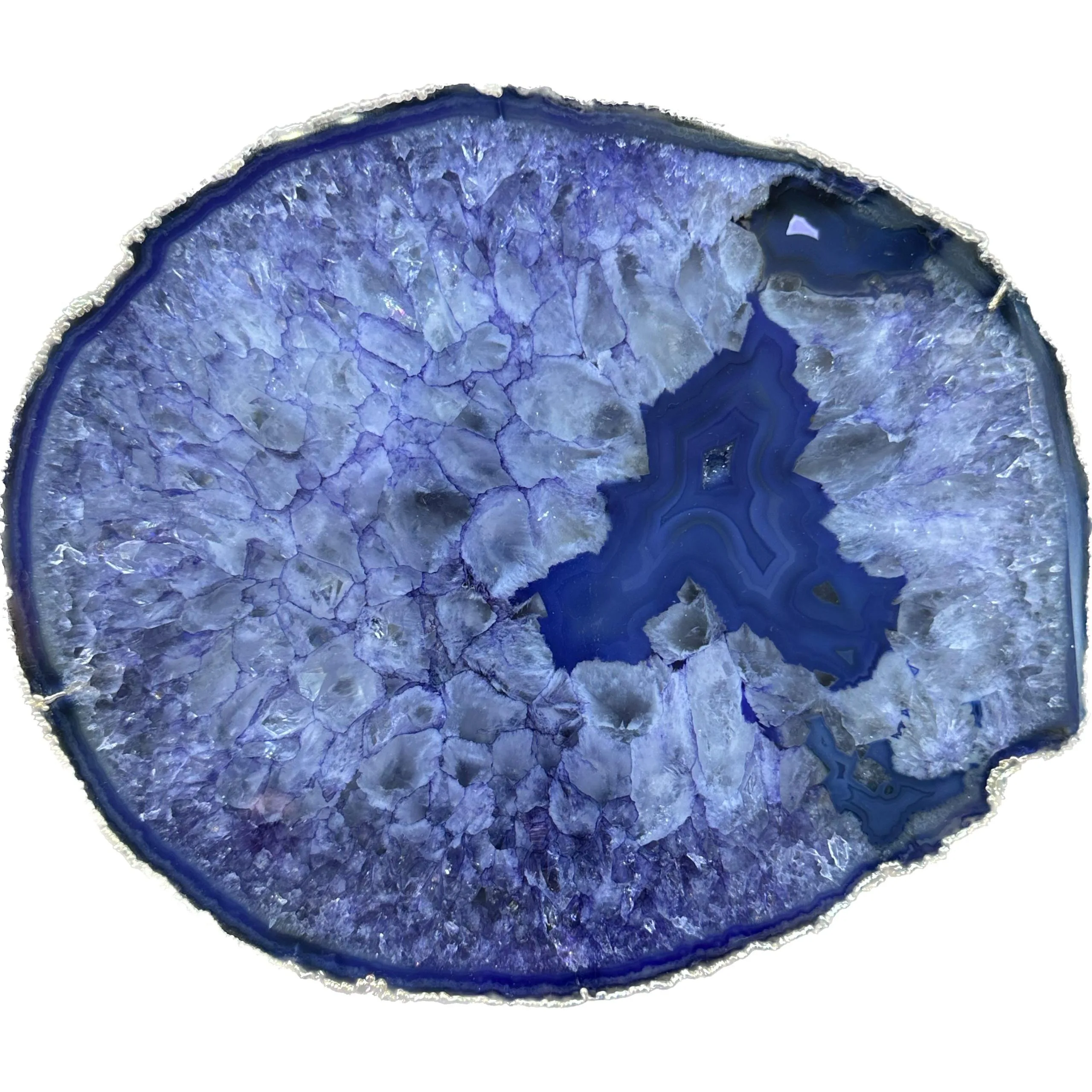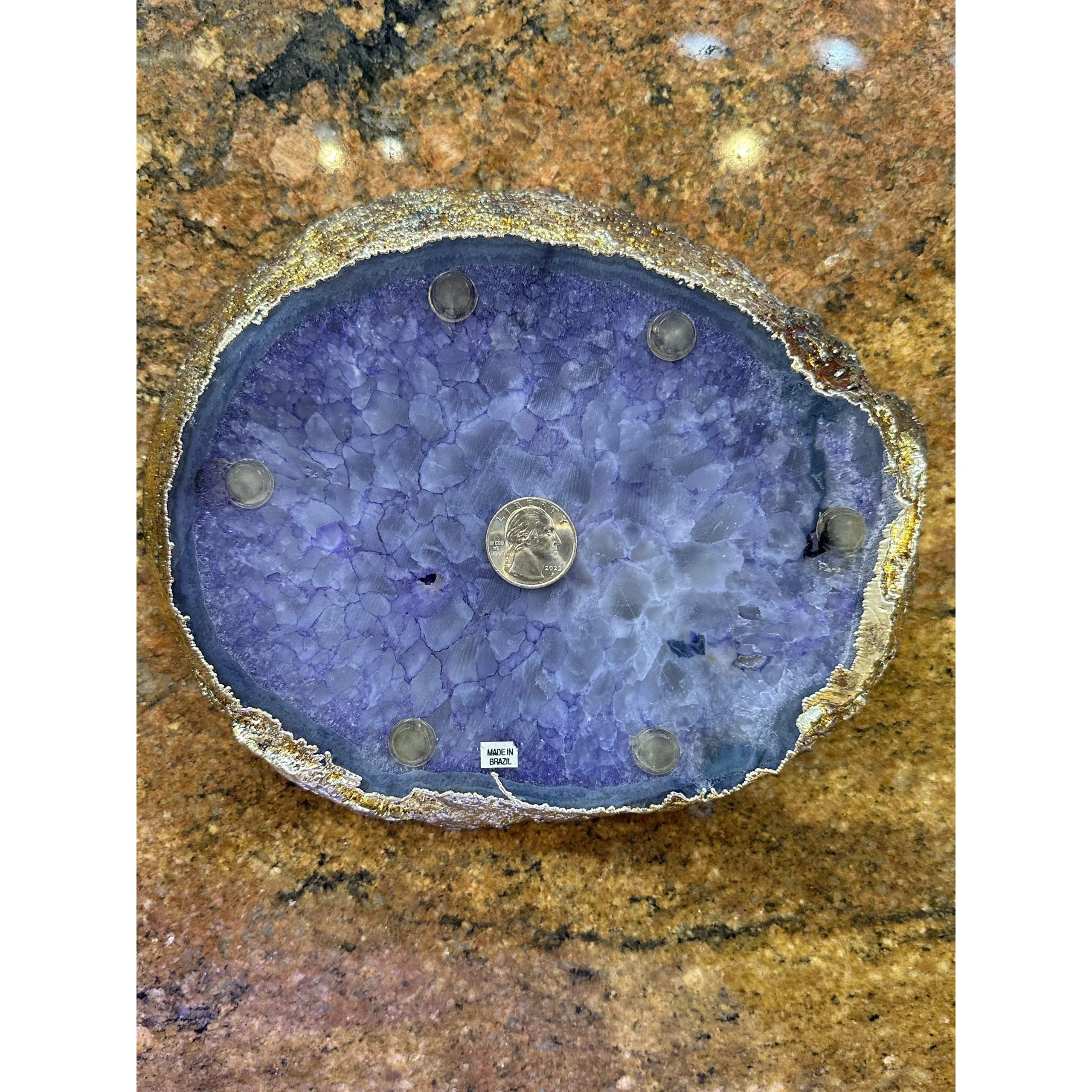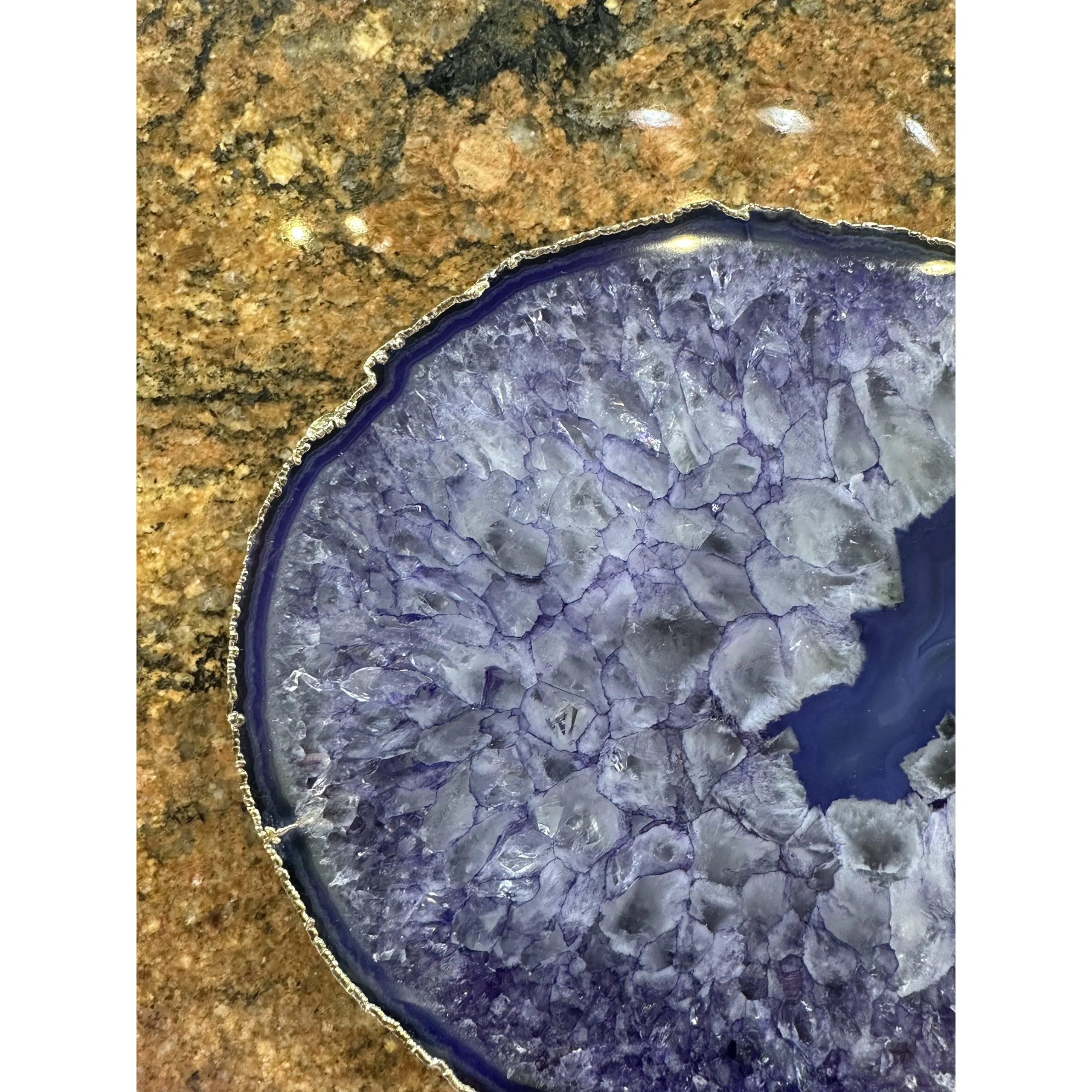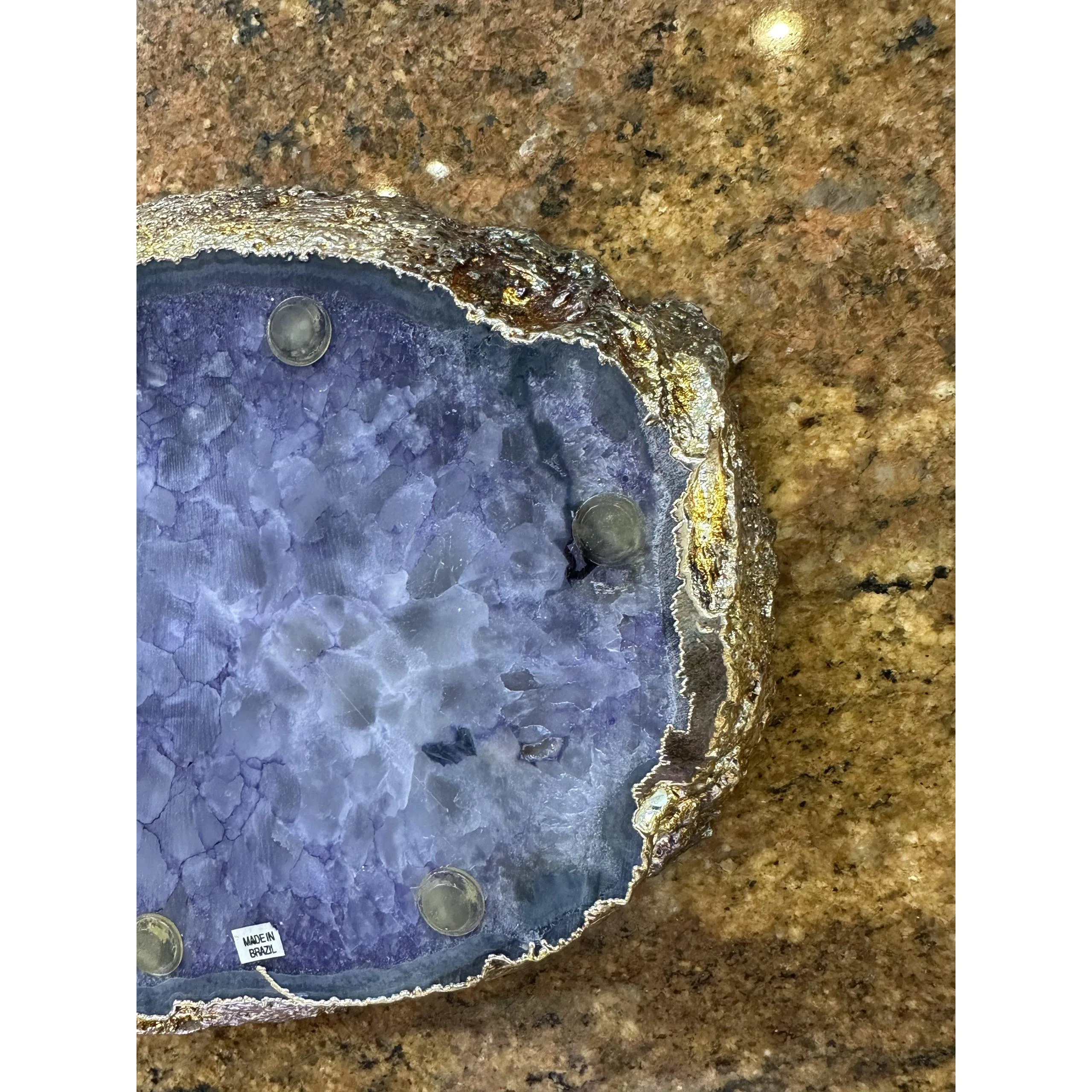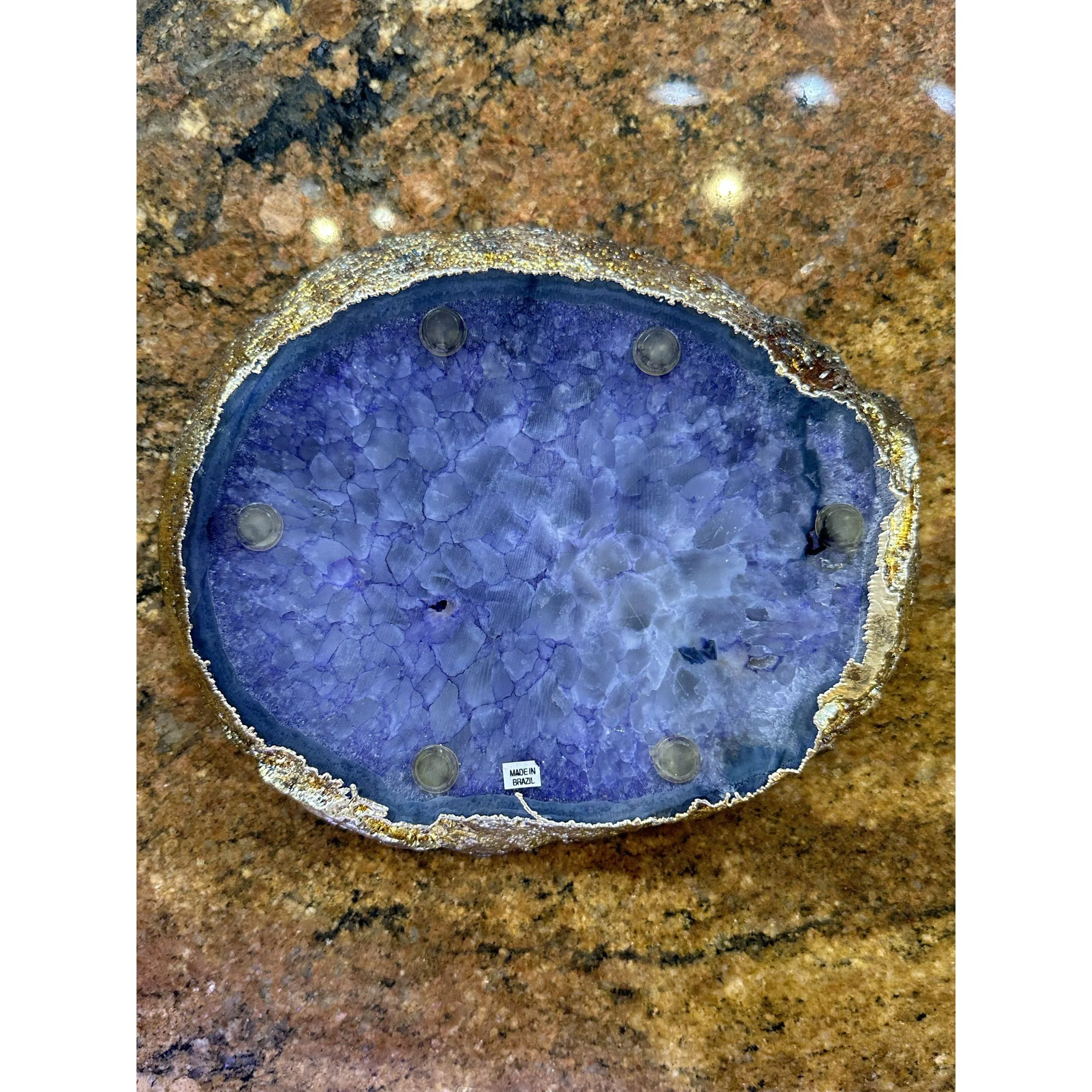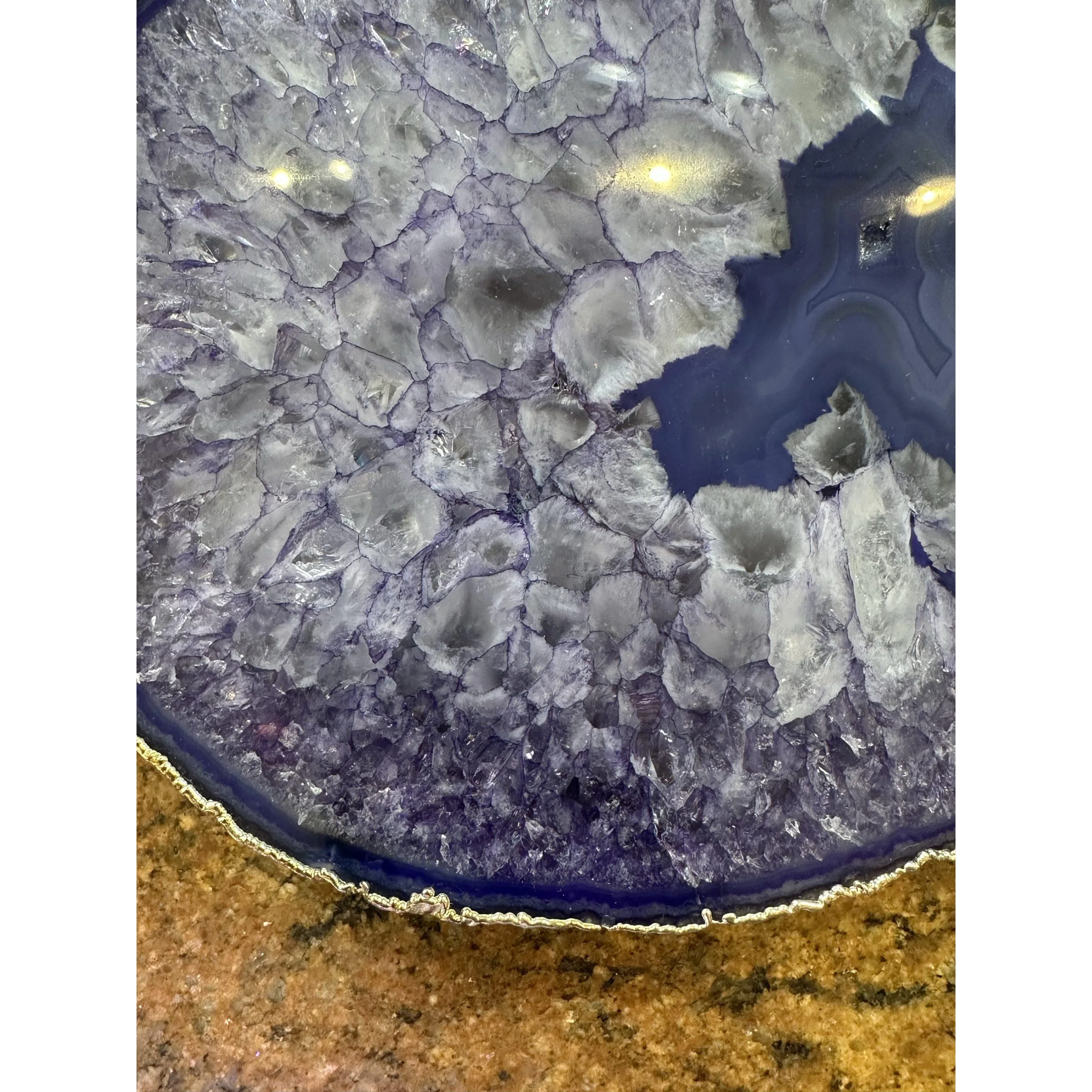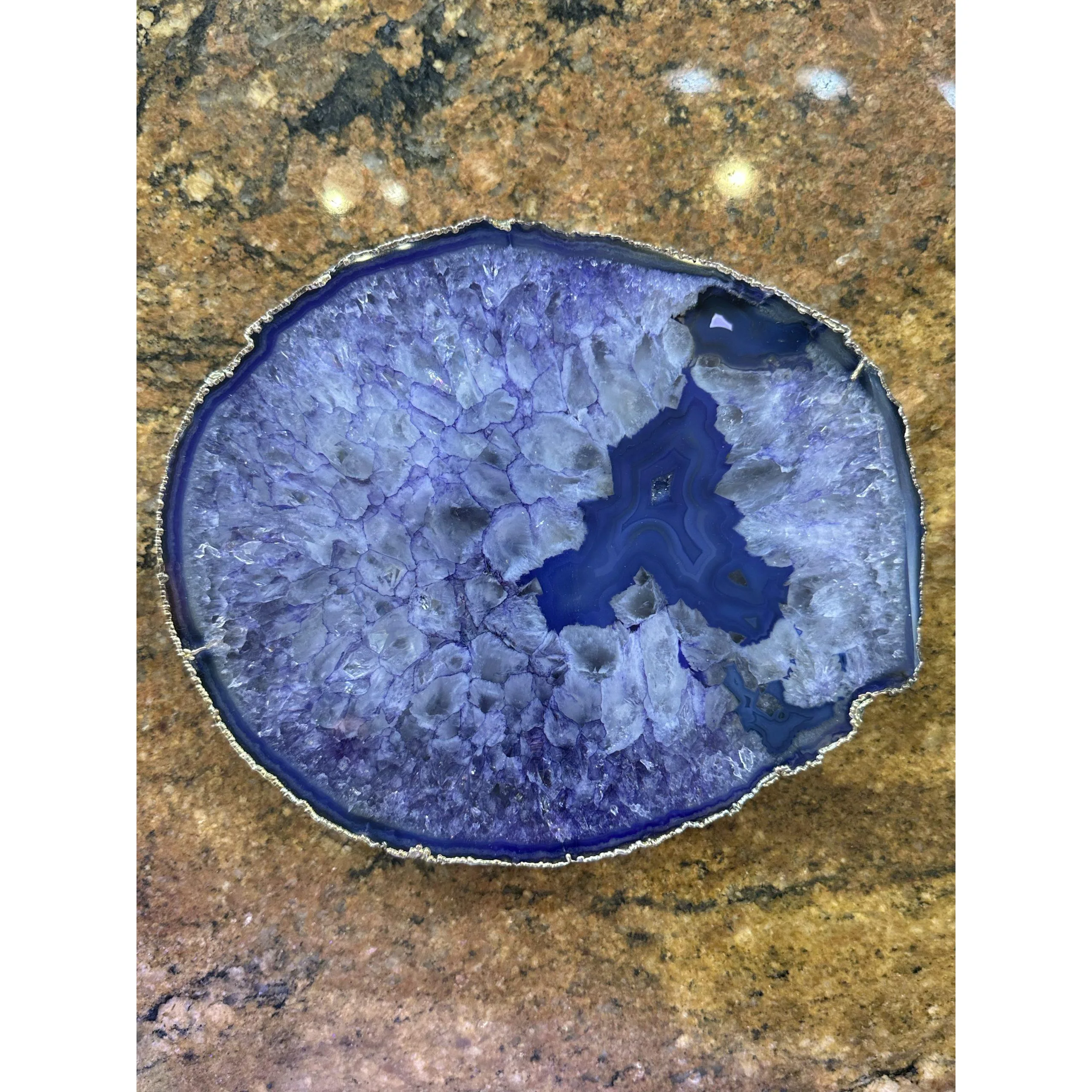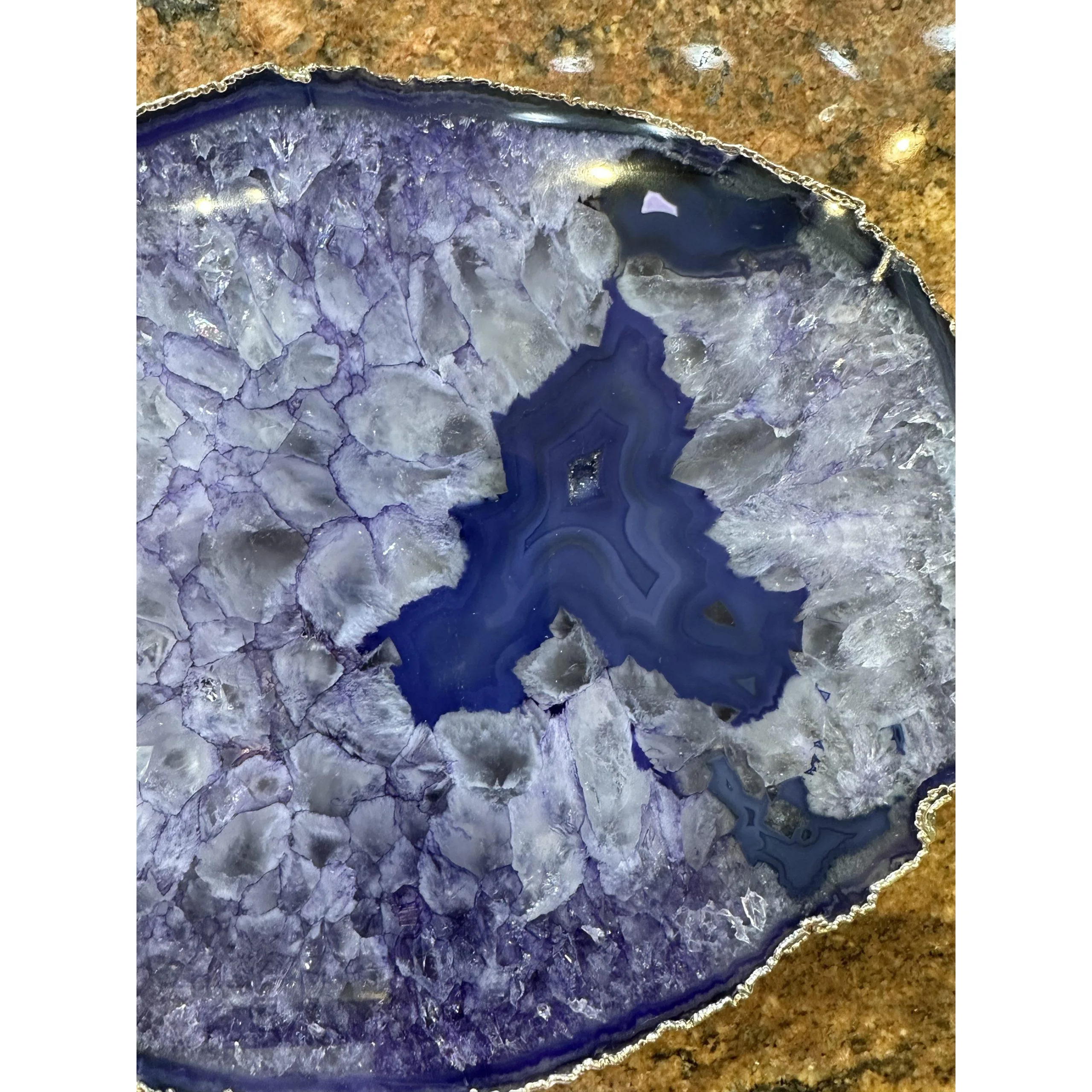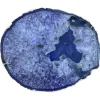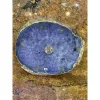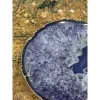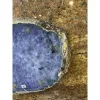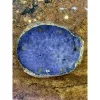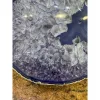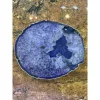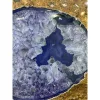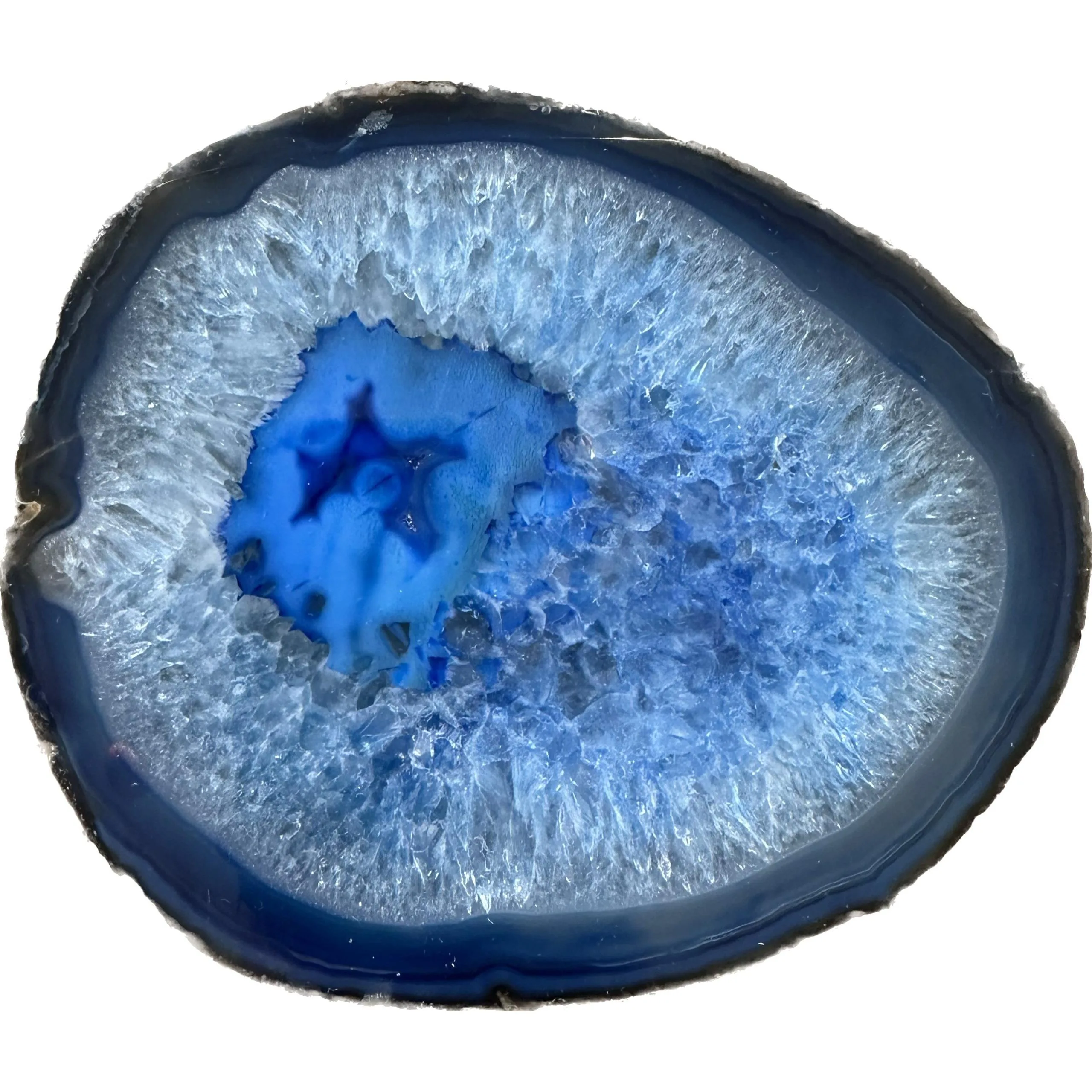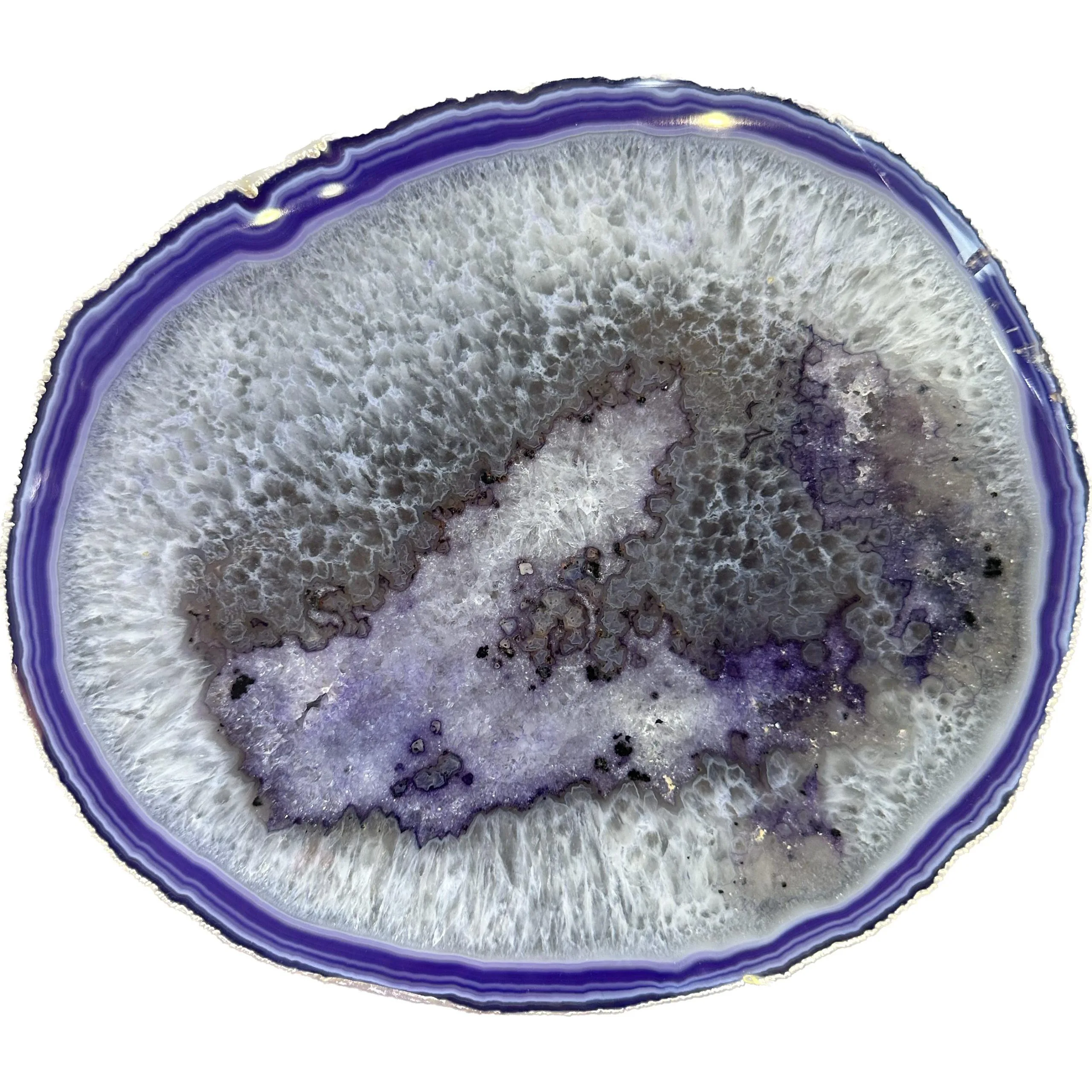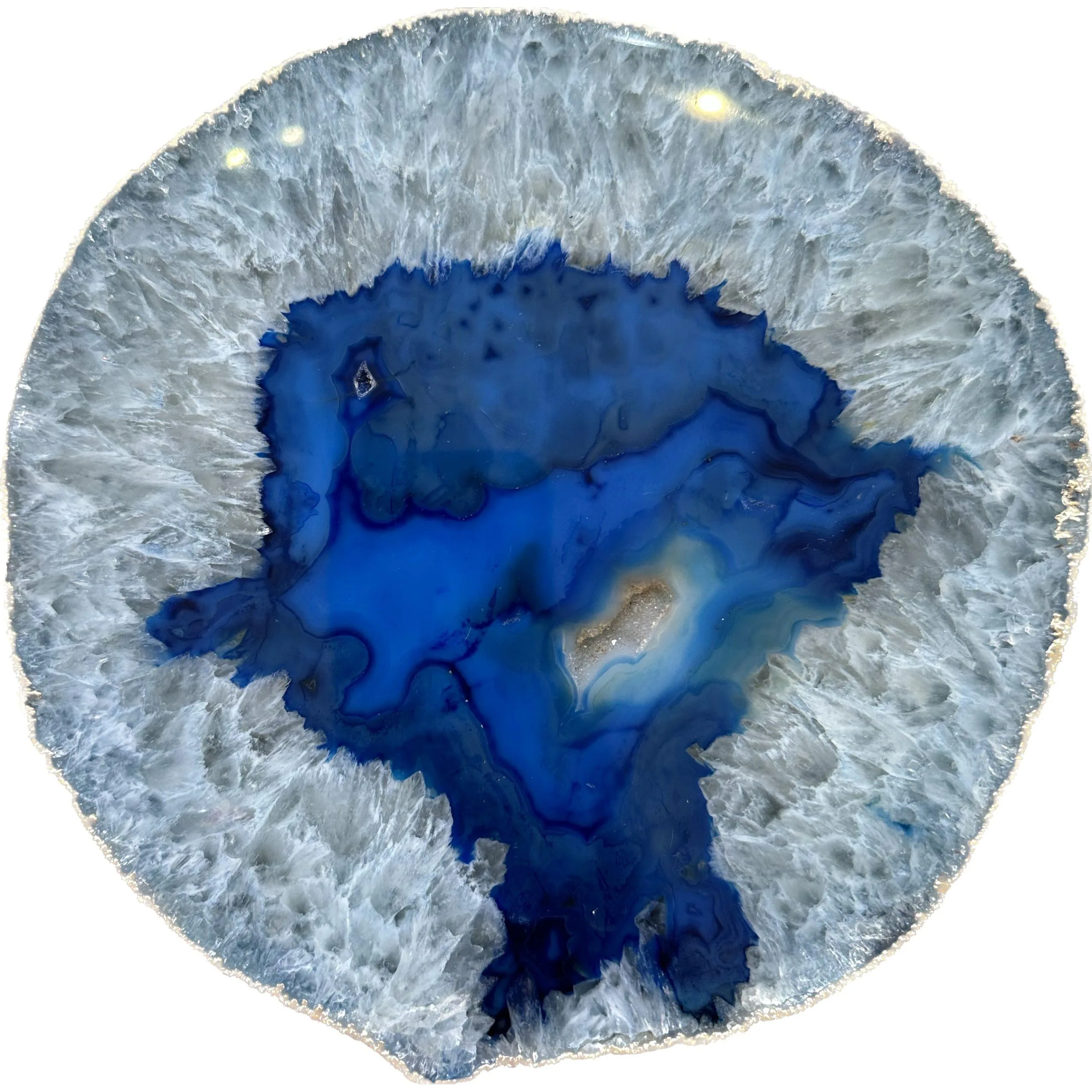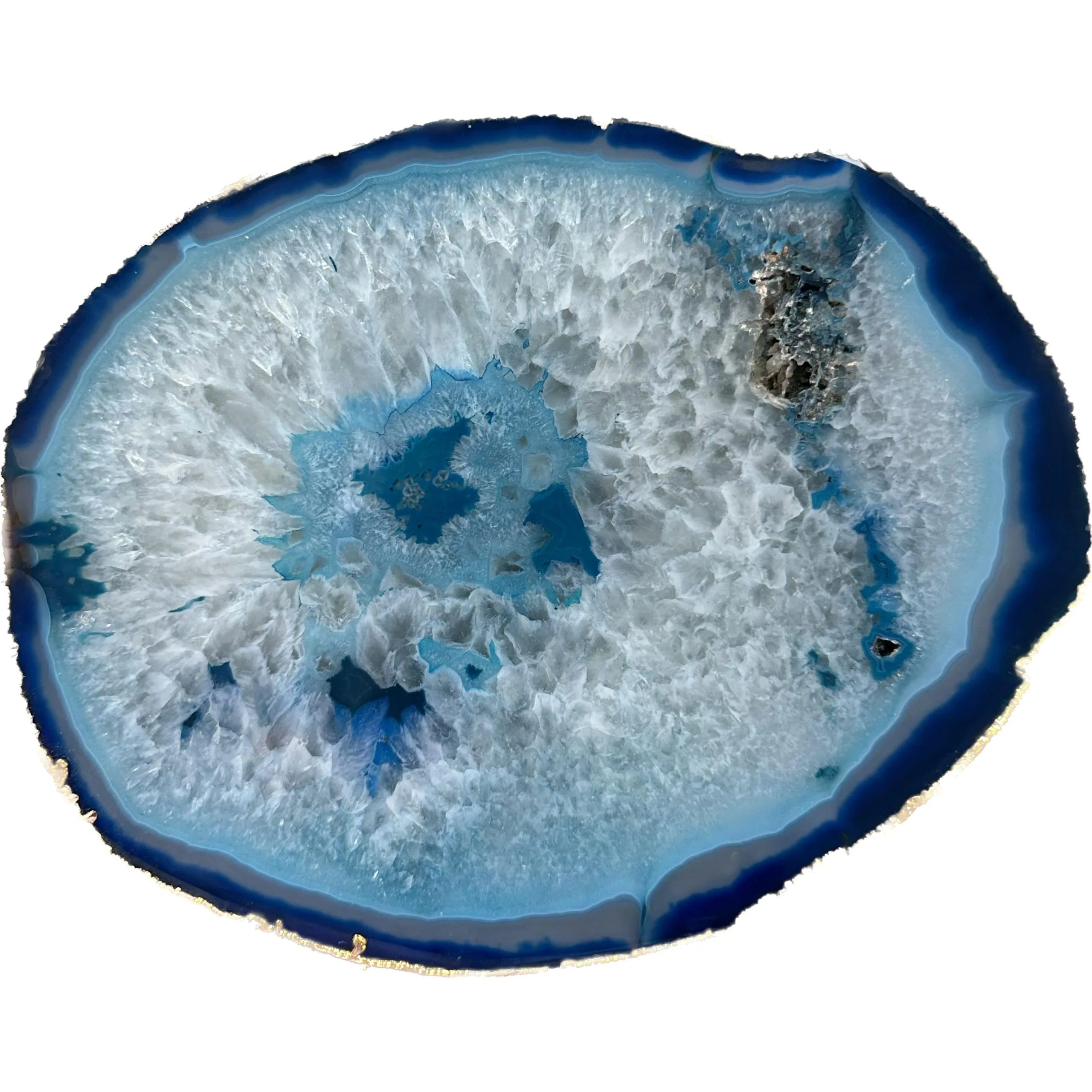Agate Slice, dyed with natural border
Dyed agate slices are spectacular display pieces. The variety of colors and patterns is endless. Agates are a type of chalcedony, a milky form of quartz, that appears in a striking banded formation that people have found aesthetically pleasing for centuries. Chemically, it is identical to quartz, amethyst, and carnelians, but because it forms in a different way, this stone looks radically different.
Brazil, Uruguay, and the Western United States are all sources for raw agate. The distinctive stone is used in jewelry and to make decorative household ornaments such as bookends and coasters. Some religious ornaments are also made from it, including worry beads and meditation stones carried in many cultures. Deposits of volcanic rock frequently harbor agate, which is formed when silicates make deposits in cracks and holes in rock.
The outer layer of the stone tends to turn dark and crusty, but the layers inside form rich bands of color that can be cut in cross section and polished for use in jewelry. It is very similar to onyx, another form of chalcedony that forms in successive layers, but agates tend to have more irregular bands and a wider range of colors. Some agates are so distinctive that they carry their own names, such as moss agate, a unique form that has feathers of rich mossy green riddling a white stone.
Often, a piece of jewelry made with the stone will have an unusual shape to accommodate a unique and striking pattern. If kept in heat and sunlight, agate can crack and fade, so owners should make sure to store it in a cool, dark place. If the stone becomes dirty, it can be washed in soap and a mild detergent solution, but people should do not use harsh or abrasive chemicals on it. Agates can scratch or crack if they are handled roughly, so owners should be gentle with jewelry made from it, and try to avoid slamming it into things or dragging it across hard surfaces.

